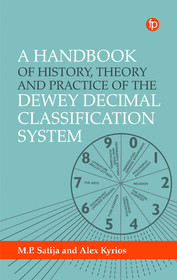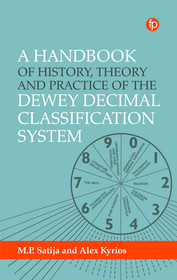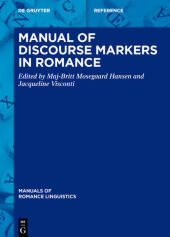
A Handbook of History, Theory and Practice of the Dewey Decimal Classification System
-
10% KEDVEZMÉNY?
- A kedvezmény csak az 'Értesítés a kedvenc témákról' hírlevelünk címzettjeinek rendeléseire érvényes.
- Kiadói listaár GBP 110.00
-
52 552 Ft (50 050 Ft + 5% áfa)
Az ár azért becsült, mert a rendelés pillanatában nem lehet pontosan tudni, hogy a beérkezéskor milyen lesz a forint árfolyama az adott termék eredeti devizájához képest. Ha a forint romlana, kissé többet, ha javulna, kissé kevesebbet kell majd fizetnie.
- Kedvezmény(ek) 10% (cc. 5 255 Ft off)
- Kedvezményes ár 47 297 Ft (45 045 Ft + 5% áfa)
Iratkozzon fel most és részesüljön kedvezőbb árainkból!
Feliratkozom
52 552 Ft

Beszerezhetőség
Becsült beszerzési idő: A Prosperónál jelenleg nincsen raktáron, de a kiadónál igen. Beszerzés kb. 3-5 hét..
A Prosperónál jelenleg nincsen raktáron.
Why don't you give exact delivery time?
A beszerzés időigényét az eddigi tapasztalatokra alapozva adjuk meg. Azért becsült, mert a terméket külföldről hozzuk be, így a kiadó kiszolgálásának pillanatnyi gyorsaságától is függ. A megadottnál gyorsabb és lassabb szállítás is elképzelhető, de mindent megteszünk, hogy Ön a lehető leghamarabb jusson hozzá a termékhez.
A termék adatai:
- Kiadás sorszáma 1
- Kiadó Facet Publishing
- Megjelenés dátuma 2023. február 16.
- ISBN 9781783306107
- Kötéstípus Keménykötés
- Terjedelem264 oldal
- Méret 238x159 mm
- Nyelv angol 438
Kategóriák
Rövid leírás:
A Handbook of History, Theory and Practice of the Dewey Decimal Classification System is a comprehensive, practical guide to today?s DDC, used by over 200,000 libraries globally. It is an
essential companion for DDC classifiers, and reference for students and educators of classification.
Hosszú leírás:
The Dewey Decimal Classification (DDC),
used in 200,000 libraries across 140 countries, has entered a new age,
primarily maintained today as a continuously revised electronic system rather
than an occasionally updated set of print volumes. Its editors have added newly
emerging topics and made it an
increasingly faceted, semantically rich, modern system. Simultaneously, the
editorial process has become democratised and more responsive to global needs.
A Handbook of History, Theory and
Practice of the Dewey Decimal Classification System
is a comprehensive, practical guide to today?s DDC. Coverage includes:
?
a brief history of the system,
its editors, and its development
?
specialized examinations of
specific parts of the classification
?
extensive guidance on number
building, with many examples
?
a WebDewey-specific chapter,
covering the system?s benefits and features
?
concise summaries of primary
takeaways, a glossary, and extensive bibliography.
This book will be an indispensable guide to
21st-century DDC, an essential companion for DDC classifiers, and
accessible for students and continuing learners as well.
"This is a comprehensive guide that delves into the nuances and intricacies of the longstanding library classification scheme, the Dewey Decimal System (DDC). The authors? extensive combined knowledge and experience in DDC permeate the book, rendering it a valuable resource for both novices and experienced library practitioners."
TöbbTartalomjegyzék:











